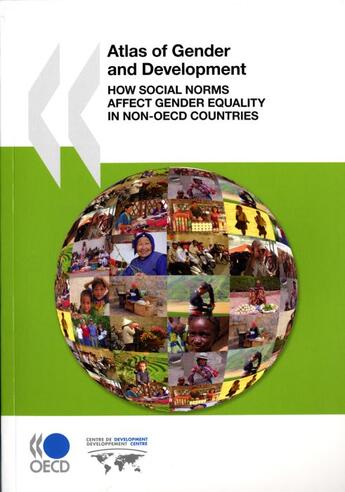-
Date de parution : 11/03/2010
-
Editeur :
Ocde
-
EAN : 9789264075207
-
Série :
(-)
-
Support :
Papier
Résumé:
Illustrated with graphics and maps, the Atlas of Gender and Development gives readers a unique insight into the impact of social institutions - traditions, social norms and cultural practices - on gender equality in 124 non-OECD countries.
Gender inequality holds back not just women but the... Voir plus
Illustrated with graphics and maps, the Atlas of Gender and Development gives readers a unique insight into the impact of social institutions - traditions, social norms and cultural practices - on gender equality in 124 non-OECD countries.
Gender inequality holds back not just women but the economic and social development of entire societies. Overcoming discrimination is important in the fight against poverty in developing countries and for the achievement of the Millennium Development Goals. Tackling these inequalities is not easy: in many countries, discrimination against women is deeply rooted in social institutions such as the family and the law. These long-lasting codes of conduct, norms, traditions, and informal and formal laws determine gender outcomes in education, health, political representation and labour markets.
The Atlas of Gender and Development is an indispensable tool for development practitioners, policy makers, academics and the wider public. It provides detailed country notes, maps and graphics describing the situation of women in 124 developing and transition countries using a new composite measure of gender inequality - the Social Institutions and Gender Index (SIGI) - developed by the OECD Development Centre.
Donner votre avis








